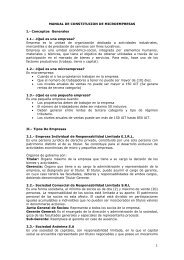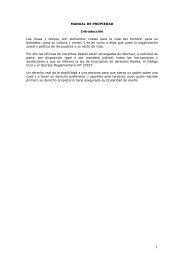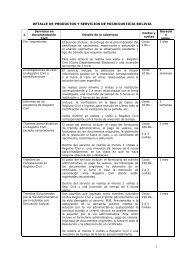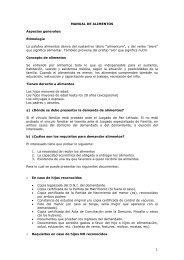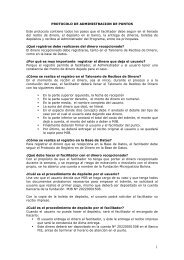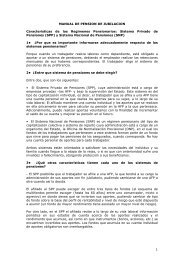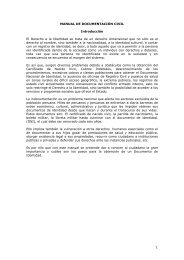ICISS report - International Coalition for the Responsibility to Protect
ICISS report - International Coalition for the Responsibility to Protect
ICISS report - International Coalition for the Responsibility to Protect
Create successful ePaper yourself
Turn your PDF publications into a flip-book with our unique Google optimized e-Paper software.
The <strong>Responsibility</strong> <strong>to</strong> <strong>Protect</strong> 78<br />
Michael Ignatieff (Canada) is currently Carr Professor of Human Rights Practice at <strong>the</strong><br />
Kennedy School of Government, Harvard University. He is also a Senior Fellow of <strong>the</strong><br />
21 st Century Trust, and served as a member of <strong>the</strong> Independent <strong>International</strong> Commission<br />
on Kosovo. Since 1984, he has worked as a freelance writer, broadcaster, his<strong>to</strong>rian, moral<br />
philosopher and cultural analyst. He has written extensively on ethnic conflict, and most<br />
recently on <strong>the</strong> various conflicts in <strong>the</strong> Balkans, including Virtual War: Kosovo and Beyond. He<br />
has also authored numerous o<strong>the</strong>r works, including a biography of <strong>the</strong> liberal philosopher<br />
Isaiah Berlin. The Russian Album, a family memoir, won Canada’s Governor General’s<br />
Literary Award and <strong>the</strong> Heinemann Prize of Britain’s Royal Society of Literature in 1988. His<br />
second novel, Scar Tissue, was short-listed <strong>for</strong> <strong>the</strong> Booker Prize in 1993.<br />
Vladimir Lukin (Russia) is currently Deputy Speaker of <strong>the</strong> Russian State Duma. He<br />
worked at <strong>the</strong> Institute of World Economics and <strong>International</strong> Relations, Moscow<br />
(1961–65) and <strong>the</strong> Institute of US and Canadian Studies of <strong>the</strong> USSR Academy of Sciences<br />
(1968–87). He also served from 1965–68 as an edi<strong>to</strong>r of <strong>the</strong> international journal Problems<br />
of <strong>the</strong> World and Socialism in Prague, but was expelled <strong>for</strong> opposing <strong>the</strong> Soviet invasion of<br />
Czechoslovakia in 1968. He joined <strong>the</strong> USSR Foreign Ministry in 1987 and served as<br />
Russian Ambassador <strong>to</strong> <strong>the</strong> USA (1992–93). He was elected a Deputy <strong>to</strong> <strong>the</strong> Supreme Soviet<br />
of <strong>the</strong> Russian Soviet Federated Socialist Republic in 1990 and <strong>to</strong> <strong>the</strong> State Duma of <strong>the</strong><br />
Russian Federation in 1993. In that year he helped found <strong>the</strong> Yabloko Faction, a party which<br />
he still represents. He served as Chair of <strong>the</strong> <strong>International</strong> Affairs Committee of <strong>the</strong> Duma<br />
(1995–99).<br />
Klaus Naumann (Germany) served as Chairman of <strong>the</strong> North Atlantic Military Committee<br />
of NATO (1996–99) and played a central role in managing <strong>the</strong> Kosovo crisis and in developing<br />
NATO’s new integrated military command structure. He joined <strong>the</strong> German Bundeswehr<br />
in 1958. As a Colonel, he served on <strong>the</strong> staff of <strong>the</strong> German Military Representative <strong>to</strong> <strong>the</strong><br />
NATO Military Committee in Brussels in 1981–82. He was promoted <strong>to</strong> Brigadier General in<br />
1986, followed by a two-star assignment as Assistant Chief of Staff of <strong>the</strong> Federal Armed<br />
Forces. He was promoted <strong>to</strong> Four Star General in 1991 and appointed at <strong>the</strong> same time<br />
Chief of Staff, a position he held until becoming Chairman of <strong>the</strong> North Atlantic Military<br />
Committee. After retirement, he served as a member of <strong>the</strong> Panel on United Nations Peace<br />
Operations.<br />
Cyril Ramaphosa (South Africa) is currently Executive Chairman of Rebserve, a major<br />
South African service and facilities management company. He was elected Secretary-General<br />
of <strong>the</strong> African National Congress in June 1991, but left politics <strong>for</strong> business in 1996. He<br />
played a major role in building <strong>the</strong> biggest and most powerful trade union in South Africa,<br />
<strong>the</strong> National Union of Mineworkers from 1982 onwards. A lawyer by training, his university<br />
years were interrupted by periods in jail <strong>for</strong> political activities. He played a crucial role in<br />
negotiations with <strong>the</strong> <strong>for</strong>mer South African regime <strong>to</strong> bring about a peaceful end <strong>to</strong><br />
apar<strong>the</strong>id and steer <strong>the</strong> country <strong>to</strong>wards its first democratic elections in April 1994, after<br />
which he was elected Chair of <strong>the</strong> new Constitutional Assembly. He received <strong>the</strong> Olaf Palme<br />
prize in Oc<strong>to</strong>ber 1987 and was invited <strong>to</strong> participate in <strong>the</strong> Nor<strong>the</strong>rn Ireland peace process<br />
in May 2000.<br />
Fidel V. Ramos (Philippines) served as President of <strong>the</strong> Republic of <strong>the</strong> Philippines from<br />
1992–98, and has, since 1999, been Chairman of <strong>the</strong> Ramos Peace and Development<br />
Foundation which deals with Asia Pacific security, sustainable development, democratic<br />
governance and economic diplomacy. Prior <strong>to</strong> becoming President, he had a long and<br />
distinguished military and police career, including service in both <strong>the</strong> Korean and Vietnam<br />
wars. He became Deputy Chief of Staff of <strong>the</strong> Armed Forces of <strong>the</strong> Philippines in 1981, and



